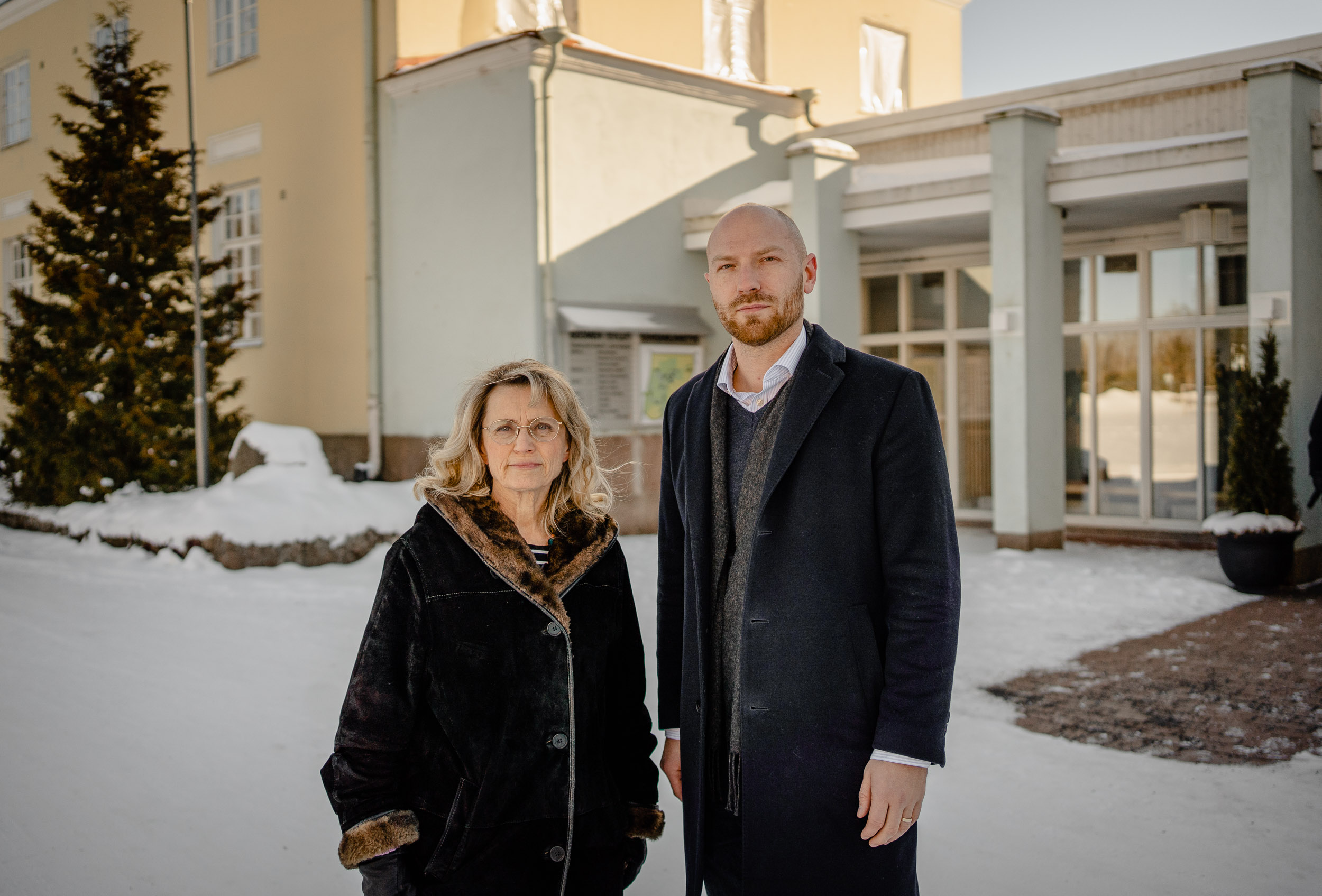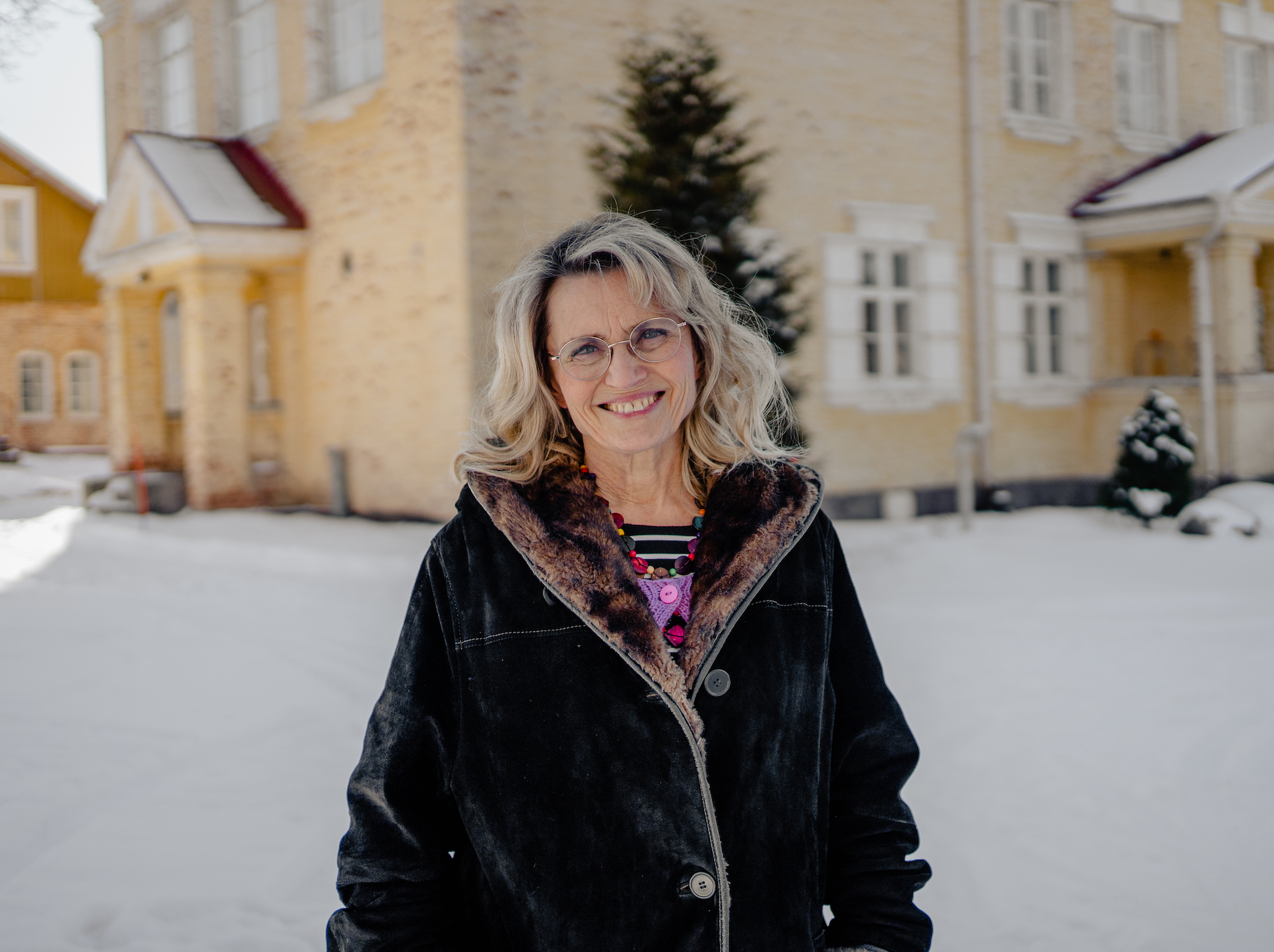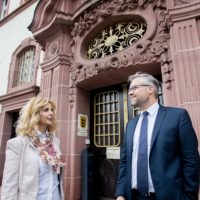Zensur ist eine schleichende Angelegenheit. Es liegt in der Natur der Sache, dass sie oft unbemerkt bleibt. Um Zensur eindeutig zu erkennen, müsste man eben bemerken, was nicht gesagt wird. Es ist anstrengend – ja fast unmöglich – die Meinungen wahrzunehmen, die unterdrückt werden.
Lies weiterFinnische Parlamentsabgeordnete feiert Jahrestag ihres Freispruchs trotz neuem “Hassrede” Verfahren
Obwohl Päivi Räsänen letztes Jahr in ihrem Fall um die Meinungsfreiheit einstimmig freigesprochen wurde, steht ihr nun im August 2023 ein weiterer Gerichtsprozess bevor. Kurz vor dem Jahrestag ihres Freispruchs am 30. März zeigt sich die finnische Parlamentsabgeordnete jedoch hoffnungsvoll.
Lies weiterZensurzonen mit Grundgesetz unvereinbar
- Zur Diskussion über Zensurzonen um Abtreibungsbezogene Einrichtungen verweist der Menschenrechtsexperte auf bereits bestehende Gesetze gegen Belästigung und verteidigt Religionsfreiheit.
- „Zensurzonen, Gebetsverbote und die Verbannung von Hilfsangeboten haben in einem freiheitlich-demokratischen Rechtsstaat keinen Platz.“
Kann es in Deutschland Gebets- und Meinungsfreie Zonen geben? Gebetsversammlungen in der Nähe von abtreibungsbezogenen Einrichtungen stoßen auf starkes Medieninteresse. Dabei kommt wiederholt die Forderung nach Zensurzonen in bestimmten Gebieten auf.
Dr. Felix Böllmann ist Menschenrechtsexperte und Anwalt bei der juristischen Menschenrechtsorganisation ADF International, die sich weltweit für Meinungs- und Religionsfreiheit einsetzt. Die Kriminalisierung von Gebeten hält er für grundrechtswidrig:
„Bundesministerin Lisa Paus hat wiederholt angekündigt, bestimmten Versammlungen in der Nähe von abtreibungsbezogenen Einrichtungen „gesetzliche Maßnahmen“ entgegenzusetzen. Dabei wären „Belästigungen“ im Rechtssinne schon jetzt verboten und je nach Intensität sogar strafbar. Unzulässig sind beispielsweise die Blockade von Eingängen oder die Ausübung von Druck, z.B. durch Geschrei.
Die Grundrechtslage auf Seite der Beter ist jedoch auch eindeutig: Versammlungsfreiheit, Meinungsfreiheit und Religionsfreiheit sind elementarste Grundrechte, die hohen Schutz genießen. Deswegen sind pauschale Zensurzonen und Bannmeilen grundrechtswidrig und mit dem Grundgesetz unvereinbar.“
Oberlandesgerichte sind sich einig
Dr. Felix Böllmann verweist auf die Gerichtsurteile der letzten Jahre: „Die Oberlandesgerichte sind sich in dieser Hinsicht einig. Das zeigt zum Beispiel der Fall von Pavica Vojnovic, der zuletzt vom Verwaltungsgerichtshof Mannheim entschieden wurde. Dieser betonte im August 2022: „Dabei ist die besondere Bedeutung der … geschützten Versammlungsfreiheit zu beachten, die als Freiheit zur kollektiven Meinungskundgabe auch und vor allem andersdenkenden Minderheiten zugutekommt, für eine freiheitlich demokratische Staatsordnung konstituierend ist und insbesondere das Selbstbestimmungsrecht über die Durchführung der Versammlung als Aufzug, die Auswahl des Ortes und die Bestimmung der sonstigen Modalitäten der Versammlung umfasst“.
Auch Gerichte in Kassel und Frankfurt haben in letzter Zeit ähnlich Urteile getroffen und die Rechte von betroffenen Betern geschützt.“
„Egal wo man in der Diskussion über das Lebensrecht ungeborener Kinder steht, wir sollten uns einig sein über den Schutz für Meinungs-, Versammlungs- und Religionsfreiheit. Zensurzonen, Gebetsverbote und die Verbannung von Hilfsangeboten haben in einem freiheitlich-demokratischen Rechtsstaat keinen Platz,“ so Böllmann weiter.
Negativbeispiel Großbritannien
„Wohin die Einschränkung von friedlichen Gebeten führen kann, zeigt ein Blick nach Großbritannien. In den letzten Monaten wurden dort mehrere Menschen aufgrund von lokalen Zensurzonen festgenommen. Die Einschränkungen stellen eine spezifische Form der Christenverfolgung dar, denn die lokalen Gesetze verbieten unter anderem das Lesen der Bibel oder das Kreuzzeichen. Die Festnahmen geschahen, weil einzelne Menschen still auf einer öffentlichen Straße beteten. Wir sollten uns in Deutschland auf keinen Fall auf diesen Weg der Zensur und Einschränkung begeben,“ warnt Böllmann, der bei ADF International die europäische Tätigkeit leitet.
Weiterführende Informationen






